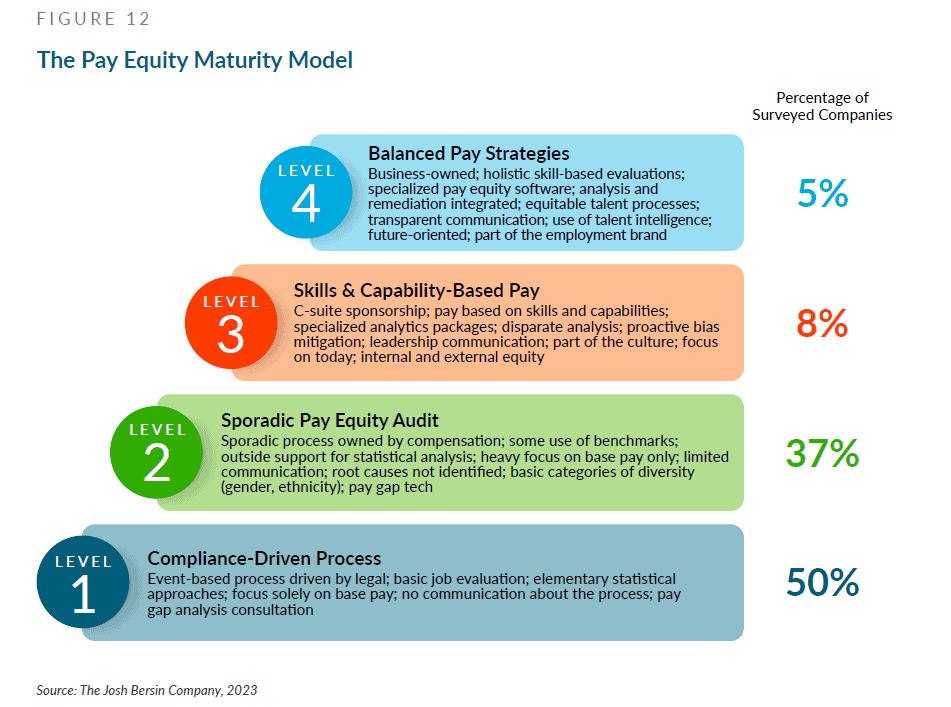
WHY SHOULD YOU CARE?
Discover why Diversity, Equity, and Inclusion (DEI) programs are at a critical juncture in this insightful article by Josh Bersin. Amidst legal challenges and societal shifts, understand the evolving role of DEI in business, its practical benefits, and why these initiatives are more crucial than ever for future corporate success.

In a time of significant social and legal shifts, the future of Diversity, Equity, and Inclusion (DEI) programs in the corporate world is at a crossroads. Renowned HR expert Josh Bersin delves into this pressing issue, exploring the changing landscape of DEI in light of recent legal developments and societal debates.
The backdrop to this discussion is the U.S. Supreme Court’s decision to strike down affirmative action in college admissions, a ruling that has rippled through various sectors, questioning the legality and future of DEI initiatives. While these programs have long been a staple in corporate America, aimed at fostering a more inclusive and equitable workplace, their foundation now seems shaken.
Bersin, a staunch supporter of both affirmative action and DEI programs, notes the increasing legal challenges faced by organizations promoting diversity through specific hiring or funding initiatives. He highlights cases where companies have been sued for programs favoring underrepresented groups, underscoring the growing uncertainty surrounding these practices.
Despite these challenges, Bersin remains optimistic about the future of DEI in business. Drawing on his research, he points out the practical benefits that diverse and inclusive practices bring to organizations. Companies like Workday, with its DEI-focused analytics system VIBE, demonstrate the tangible advantages of these programs, from improved performance to deeper engagement with diverse markets.
Bersin also addresses the complex issue of pay equity. His research reveals that most companies struggle with pay disparities unrelated to performance, a problem that DEI programs are well-positioned to address. However, the legality of analyzing and adjusting pay based on race or nationality remains a contentious issue.

The article paints a concerning picture of the current state of DEI jobs in the U.S., with a significant decline in hiring despite an economic boom. This trend, coupled with DEI roles being targeted in layoffs, signals a shift in corporate priorities away from these initiatives.

Yet, Bersin asserts that the principles of DEI are not going away. He draws parallels with the evolution of digital roles in companies, suggesting that while the role of Chief Diversity Officers might change, the need for embedding inclusion and diversity across all business units is more crucial than ever. He underscores this point with examples from companies like Target, Chevron, and SAP, where DEI is framed as a core business strategy, yielding substantial benefits.
Bersin’s analysis suggests that while the form of DEI initiatives might evolve, their essence and importance in the corporate world remain unshaken. As companies navigate these turbulent times, the integration of DEI into the broader business and sustainability strategies appears not only beneficial but essential for future success and resilience.
Written by: Mihaly Nagy
DEI DIversity Equity Inclusion HR Strategy
Previous post

labelArticles today2024.01.09.
Employee Experience: The New Frontier or Just Snake Oil?
WHY SHOULD YOU CARE? In this insightful article, we delve into the controversial topic of Employee Experience (EX), a concept gaining traction in modern corporate culture. Antoinette Weibel, a renowned [...]
Similar posts

labelArticles today2024.10.21.
The success-recipe to build agile and future-ready organizations in 2025 and beyond








Post comments (0)